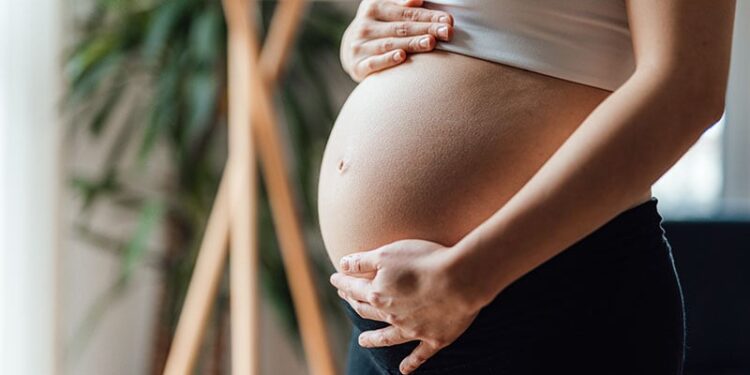The French National Academy of Surgery recently held a session to review the potential complications of pregnancy in women with endometriosis. The discussion featured Louis Marcellin, MD, PhD, specialist in gynecology, obstetrics, and reproductive medicine at Assistance Publique – Hôpitaux de Paris, one of France’s largest academic hospital systems.
“We’ve only been actively examining the link between endometriosis and pregnancy for about 15 years,” Marcellin explained. “Endometriosis affects around 10% of women and is an inflammatory disease of the endometrium that can lead to serious health consequences. Until recently, it was unclear whether the condition had a direct impact on pregnancy. Since the fetal membranes and placenta interact with endometrial tissue affected by endometriosis, this could potentially result in adverse outcomes. These questions have prompted ongoing investigation.”
According to Marcellin, the issue can be approached from two distinct perspectives: “First, how might endometriosis affect the course of pregnancy? Could it be linked to obstetric complications such as preterm birth, intrauterine growth restriction, or preeclampsia? Second, how does pregnancy itself influence the progression of endometriosis over time?”
Preterm Birth Risk?
To evaluate whether endometriosis increases the risk for pregnancy complications, Marcellin referenced findings from a multicenter study conducted in 2022 in several regions of France, including the Paris metropolitan area, as part of a hospital-based clinical research program.
“We did not find a clear association between endometriosis and preterm birth,” he noted. However, he emphasized that pregnancy itself can exacerbate endometriosis in rare but potentially serious ways due to hormonal fluctuations.
“The hormonal environment of pregnancy can influence endometriotic lesions, which are highly responsive to hormonal changes. During pregnancy, these lesions can undergo a transformation known as decidualization, driven by increased hormone levels,” he explained. “This process can lead to serious complications depending on the anatomical location of the lesions. These include severe internal bleeding — referred to as spontaneous hemoperitoneum during pregnancy — which can be life-threatening. Lesions affecting the bowel may result in intestinal perforations, while in women with adenomyosis — a form of endometriosis within the uterine wall — there is a rare but real risk of uterine rupture. Though these events are uncommon, they can be unpredictable and clinically significant, so heightened awareness among obstetricians is essential.”
No Need for Special Protocols
Despite these potential risks, Marcellin stressed that standard prenatal care protocols do not need to be adjusted for patients with endometriosis.
“These concerns should not change routine pregnancy monitoring,” he said. “In most cases, pregnancy proceeds normally, and endometriosis does not require more intensive medical oversight. The risk of complications is low, which is reassuring for both clinicians and patients.”
He also noted that there is no significant difference in pregnancy-related risk between ovarian endometriosis and deep infiltrating endometriosis, further supporting the use of standard care approaches.
Dispelling Myths
Marcellin also addressed a common misconception that pregnancy cures endometriosis.
“That’s been clearly debunked,” he said. “Endometriosis has become more common today partly because women are having fewer children, which increases menstrual exposure. In the past, with more frequent pregnancies and breastfeeding, women had fewer periods, which reduced the risk of developing endometriosis. It’s true that progesterone, produced during pregnancy, can help alleviate symptoms and inflammation, but that does not constitute a cure.”
Issue of Adhesions
He also discussed adhesions, a frequent complication after surgical treatment for endometriosis, particularly colorectal surgery for digestive tract involvement.
“Adhesions are fibrous bands of tissue that form between organs, often due to peritoneal trauma from surgery, exposure to blood, or the healing process,” he explained. “These can complicate future surgeries, such as cesarean delivery, especially when the adhesions are located in front of the uterus. They tend to appear in areas that have already been operated on. For example, colorectal surgery for bowel endometriosis can lead to significant adhesions.”
This story was translated from Medscape’s French edition.
Source link : https://www.medscape.com/viewarticle/does-endometriosis-complicate-pregnancy-2025a1000eyf?src=rss
Author :
Publish date : 2025-06-03 11:15:00
Copyright for syndicated content belongs to the linked Source.














